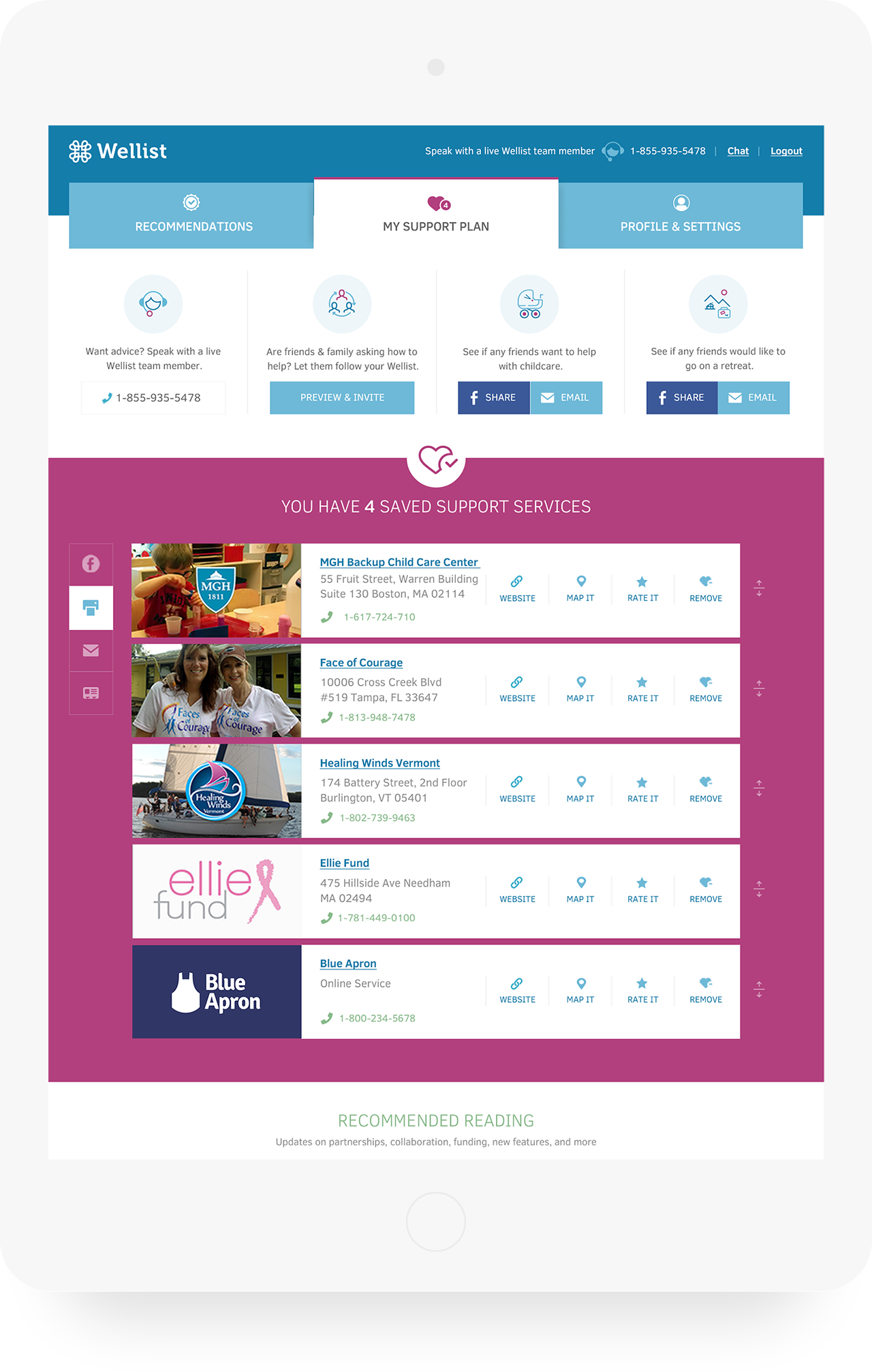You’ve either experienced it or know someone who has: leaving the hospital with a new diagnosis or a newborn child and feeling like everything has changed. Living life to the fullest isn’t just about getting great medical care; it’s also about getting help with all of the little things that if unaddressed, become big things. Transportation, a clean house, good meals, childcare, pet care, exercise, confidence in your finances – the things that consume your daily life can become all-consuming and make coming home hard. And while friends and family often do their best by offering “to help in anyway,” asking for help (or even knowing exactly what kind of help you need) can often be more stressful than it’s worth.
Ashley Gilmore Reid understood how much these non-medical challenges were affecting people’s personal well-being, so she created Wellist: a virtual case manager that helps people efficiently discover, evaluate and save all of the different, vetted services they might need while they are outside of the clinical setting to improve the quality of their daily lives and overall wellness.
When we met Ashley and her team, Wellist had already proven the power of their idea with participation from some of the best hospitals in the country including Mass General Hospital and Beth Israel Deaconess, but the experience of the product hadn’t yet delivered on the noble promise of the company.
Transportation, a clean house, good meals, childcare, pet care, exercise, confidence in your finances – the things that consume your daily life can become all-consuming and make coming home hard.
Working with the Wellist team, altr embarked on a wholesale redesign of Wellist’s product experience. The new Wellist has been redesigned to help people feel more confident sharing some of the more sensitive personal information that Wellist requires to make effective service recommendations with a custom product experience that continues to engage users and the community of people supporting them to make ever more relevant recommendations and, most importantly, help people feel supported while knowing that they are never alone.

From the beginning, Wellist was conceived as a very human, very empathetic support system for people at a critical time of need in their lives. Yet there was a significant opportunity to make a more human connection through the product experience. Our job in working with Wellist was to simply to ensure that this humanity came through in all aspects of the experience. It’s a common objective across all of our work – creating digital experiences that feel more human than digital, that adapt to how we want to interact with them, and that seamlessly insinuates themselves into our lives.
Though Wellist was designed to help people at a critical point of change in their lives, we had to design an experience that respects the one thing that never changes: people are people, and people always seek out the most human experiences.